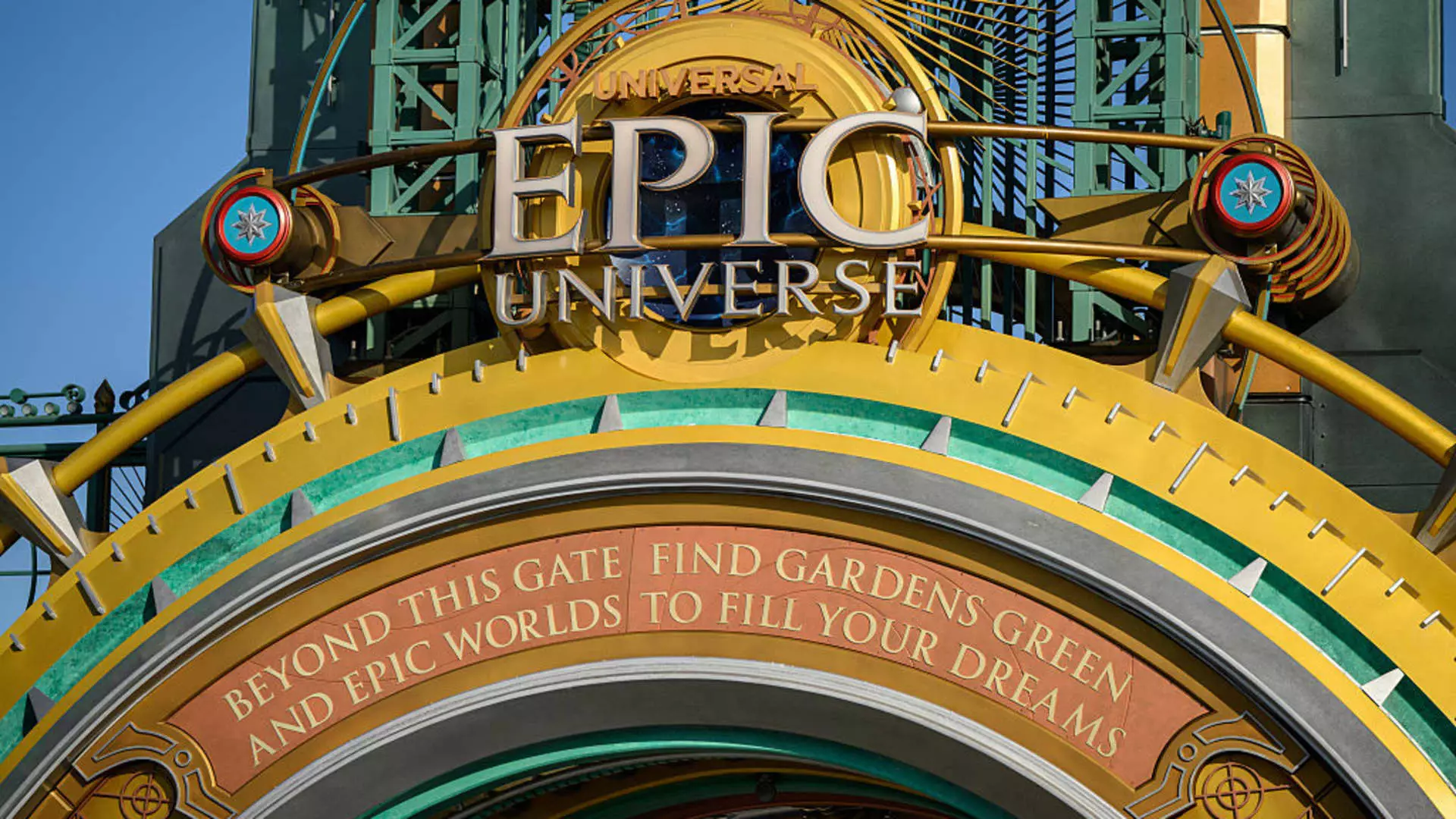As the countdown begins for the grand opening of Universal’s Epic Universe on May 22, 2024, the excitement in Orlando is palpable. This behemoth of a theme park, the first new major theme park in Florida in a quarter-century, is not just a welcome addition; it’s a game-changer, poised to reshape the dynamics of Orlando’s tourism sector significantly. Spanning a staggering 750 acres, Epic Universe will encompass five richly themed worlds, including fan favorites like The Wizarding World of Harry Potter and Super Nintendo World. The sheer scale of this investment—reportedly around $7 billion from Comcast—will undoubtedly have lasting effects on the local and even state economy.
Tourism: Orlando’s Lifeblood
Tourism has long been the backbone of central Florida’s economy, attracting over 74 million visitors in 2023 alone. As the region’s economic powerhouse, tourism responsible for nearly half of the sales tax revenue in Orange County is vital. However, Epic Universe’s immediate and long-term impact could be monumental. It’s not merely about the increase in traffic; it’s about what that traffic entails—millions of dollars spent on hotel stays, dining, shopping, and entertainment. This burgeoning financial ecosystem will likely burgeon, creating a ripple effect that benefits local businesses, employees, and the infrastructure.
As Casandra Matej, CEO of Visit Orlando, beautifully articulates, the park is a “compelling reason to visit Orlando.” One can’t help but see this as more than just an entertainment venture; it’s a strategic push for the region to solidify itself as a global tourism powerhouse.
Ecosystem of Opportunity
The opening of Epic Universe comes with promising economic projections. According to a report by Sean Snaith from the University of Central Florida, the park is expected to generate approximately $2 billion in its inaugural year alone. Moreover, it will create about 17,500 new jobs which, in a state already showcasing robust job market conditions, calls for celebration. Beyond the obvious roles—engineers, artists, and architects—the secondary effects on retail jobs, service industry roles, and more will bolster an already healthy labor market. This infusion of employment will help sustain and even elevate Florida’s economic growth trajectory.
Furthermore, the construction phase of the park, which saw around 65,000 jobs created, also sends a signal of growth. The focus on local hiring and the training of employees will empower the community, presenting not merely a temporary boost but a sustained economic model anchored in long-term investments.
Collaborative Competition
However, here lies the critical aspect of this theme park age: it’s more than just about Universal’s Epic Universe. The park’s opening is poised to reignite friendly competition with Disney, an established behemoth in the area. Experts in the amusement sector reinforce the notion that when one player augments its offerings, others must follow suit. The expectations are that this competitive atmosphere may drive further innovation and development, leading to new attractions that could draw even more visitors to both parks. This interdependence reinforces the idea that a thriving tourism market benefits all stakeholders involved.
Jakob Wahl, CEO of the International Association of Amusement Parks and Attractions, suggests that the “rising tide lifts all boats.” This sentiment emphasizes that the visitors drawn to Epic Universe are likely to explore neighboring attractions. Orlando’s reputation as a destination for diverse entertainment options could see exponential growth, making every extension of visits matter significantly in economic terms.
Cultural and Economic Resilience
Even beyond the immediate fiscal benefits, the cultural repercussions of Epic Universe would be hard to ignore. This new venture signifies a bold leap into the future—a reaffirmation of Orlando’s status not just as a hometown for tourists but as a cultural crossroads. The international vibe that Orlando cultivates—where travelers from all corners of the globe converge—will only strengthen as new attractions emerge. The narrative of ‘more options lead to more joy’ rings true here and could reinforce the city’s identity as a forward-thinking and inclusive space.
Moreover, Epic Universe arrives in a time when Florida’s labor market is vibrant. For those who might express concern about worker shortages or competition for jobs, this investment serves as a strong rebuttal: the narrative shifts towards growth and opportunity, painting a picture of a thriving economy that intends to outpace national trends.
With Epic Universe on the horizon, one must recognize the profound transitions occurring in Orlando’s tourism landscape and the potential ramifications that come with it. There’s no denying that this investment could serve as a microcosm of future developments, not only for Florida but also for the global theme park industry as we move forward into this exciting new era.

